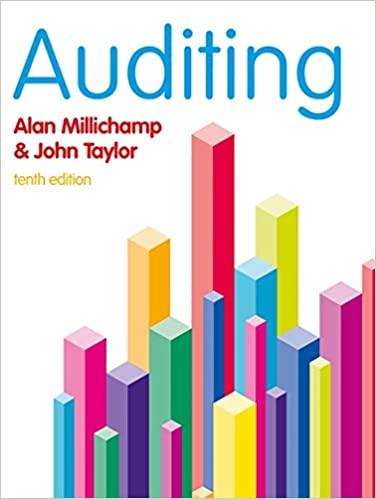Question
You should limit the discussion to defined benefit pension funds, where the pension fund guarantees all benefits, regardless of returns earned. In the alternative, a
You should limit the discussion to defined benefit pension funds, where the pension fund guarantees all benefits, regardless of returns earned. In the alternative, a defined contribution fund, typically the beneficiary controls the investment decision. So, should a public defined benefit pension fund manager decide which is an acceptable issue to boycott for investing?
lease read the article in the link below and discuss how you feel about whether public pension funds should or should not engage in social investing - and explain why.
While this article presents the negative view, specifically relative to legal firearm manufacturers, keep in mind that there are many other issues on which well-informed, intelligent people have differing opinions. (For example, environmental practices, testing on animals, etc,)
Opinion: Public plans should not engage in social investing
Published: April 2, 2018 at 8:58 a.m. ET
By
Alicia H. Munnell
Divesting stock of arms manufacturers raises a host of problems
Every few years, politicians come up with the brilliant idea of using public pension funds to make political statements. The most recent incarnation is proposed legislation that would require the Massachusetts public pension fund managers to sell the stock of any firearm company that derives more than 15% of its revenues from the civilian market. This legislation is supported by the states treasurer, Deb Goldberg.
The emotional appeal of such a call is powerful in wake of the horrific shooting in Parkland, Fla. But strong arguments exist against using public pension plans to accomplish policy goals, much less simply to make us feel better.
The divestiture of gun stocks by Massachusetts plans or even by all public plans is unlikely to affect the price of the stock of these companies. The action may cause a temporary price drop, but as long as some buyers remain they will swoop in, purchase the stock, and make money. And the buyers are out there. The Vice Fund VICEX, -0.92%, which was established in 2002, specializes in only four sectors: alcohol, tobacco, arms, and gambling, and thus stands ready to buy any stocks diverted from standard portfolios.
Most important, public pension funds are particularly ill-suited vehicles for social investing. First, adding a new criterion to the investment decision will increase the likelihood of mistakes. While the investment teams for many large public funds are first-rate, others are much less experienced. Introducing divestment requirements into such an environment will take the managers eye off the prize maximum returns for any given level of risk.
Second, while the divestiture of gun manufacturers alone would have little impact on the returns of public pension funds, it is the first step down a slippery slope. The last round began with Sudan, but quickly spread to Iran and terror-free investing. Before that was tobacco and, in Massachusetts, any firm doing business with Northern Ireland. The point is that while divesting a few stocks will have little impact on fund returns, divestiture as standard procedure will sharply increase administrative costs and lead to lower returns.
Finally, the people advocating for divestiture and the stakeholders in the pension fund are not the same people. The advocates for divestiture are either politicians or legislators. The stakeholders are tomorrows beneficiaries and/or taxpayers. If divestiture produces losses either through higher administrative costs or lower returns, tomorrows taxpayers will have to ante up or future retirees will receive lower benefits. The welfare of these future actors is not well represented in the decision-making process.t to do in your 50s to ur retirement
The issue of divestiture does not arise in the private sector, which is covered by the Employee Retirement Income Security Act (ERISA) of 1974. From the beginning, the U.S. Department of Labor has warned that the exclusion of investment options would be very hard to defend under ERISAs prudence and loyalty tests. Thus, ERISA fiduciary law has effectively constrained social investing in private sector defined-benefit plans.
Massachusetts public plans are not well funded. Based on their assumed returns, the plan for state employees has assets equal to only 65% of liabilities and the plan for teachers only 52%. These plans have real problems that need to be addressed. Advocating the divestiture of companies that manufacture firearms is a frivolous diversion and could establish a dangerous precedent for further divestiture.
Step by Step Solution
There are 3 Steps involved in it
Step: 1

Get Instant Access to Expert-Tailored Solutions
See step-by-step solutions with expert insights and AI powered tools for academic success
Step: 2

Step: 3

Ace Your Homework with AI
Get the answers you need in no time with our AI-driven, step-by-step assistance
Get Started


